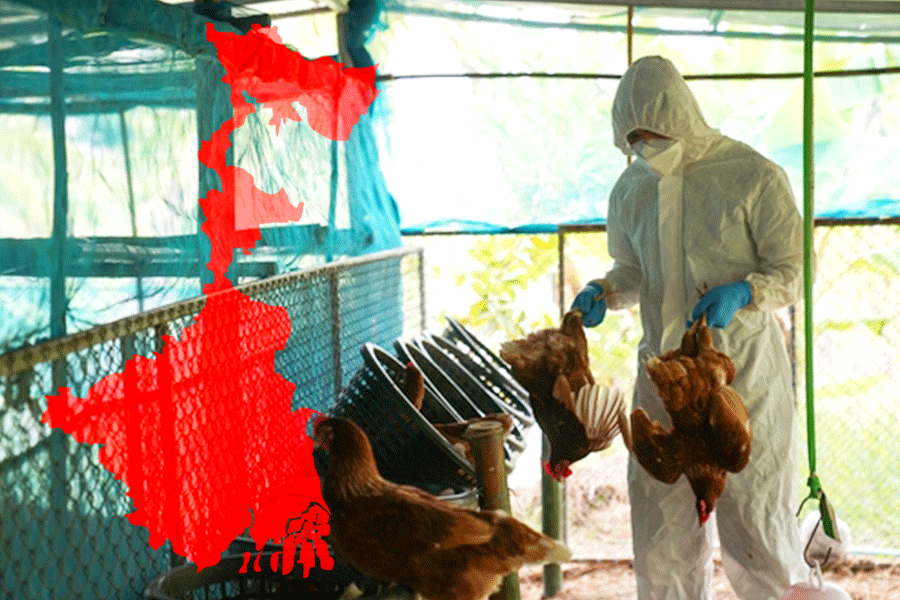A state health department team will go to Malda’s Kaliachak on Thursday for surveillance after a four-year-old boy was detected with avian influenza A (H9N2) virus infection.
Health department officials said that in another case, a two-year-old who had visited Calcutta from Melbourne was diagnosed with the same infection.
“Initially, a round of surveillance was carried out one month ago in the Kaliachak locality where the boy’s house is. The child is fine and there is no evidence of further spread of the virus. We checked for influenza-like illness or ILI in the area and there is no surge,” a senior official in the state health department said.
World Health Organisation on Tuesday issued an alert citing India’s second notified case of avian influenza A of sub-type H9N2. The first was in 2019.
On May 22 this year, WHO had received a notification regarding a human case of avian influenza A (H9N2) in Bengal.
According to the WHO, the child, previously diagnosed with hyperreactive airway
disease, was taken to a paediatrician on January 26 with complaints of fever and abdominal pain.
“On 29 January, the patient developed seizures and was brought to the same paediatrician. On 1 February, the patient was admitted to the paediatric intensive care unit (ICU) of a local hospital due to the persistence of severe respiratory distress, recurrent high-grade fever and abdominal cramps,” the WHO said.
“The patient was diagnosed with post-infectious bronchiolitis caused by viral pneumonia. On 2 February, the patient tested positive for influenza B and adenovirus at the virus research and diagnostic laboratory at the local government hospital. The patient was discharged from the hospital on 28 February 2024.”
Health department officials in Calcutta said the child was referred to the NRS Medical College and Hospital on March 3 because of the recurrence of severe respiratory distress. The child was admitted to the paediatric ICU at NRS and intubated.
“We sent the nasopharyngeal swab to the National Institute of Virology, Pune, and the virus was subtyped as avian influenza A (H9N2),” said the official.
According to the WHO, the patient was discharged from the hospital on May 1 with oxygen support.
“The patient had exposure to poultry at home and in the surroundings. There were no known persons reporting symptoms of respiratory illness in the family, the neighbourhood, or among healthcare workers at health facilities attended by the case at the time of reporting,” the WHO said.
As for the two-year-old from Melbourne, health officials said the child was diagnosed with avian flu infection after returning to Australia from Calcutta.
“We have done a thorough surveillance of the family members of the child in Calcutta and there is no sign of spread of the infection. Also, we checked the health conditions of passengers on the flights sitting in the rows near the child and they did not report any illness,” said the official.
He said at the moment there is no evidence of human-to-human transfer of the virus subtype.
“This case does not change the current WHO recommendations on public health measures and influenza surveillance at the human-animal and environmental interface. A thorough investigation of every human infection is essential,” the WHO said.
“The public should avoid unprotected contact with live poultry, high-risk environments such as live animal markets or farms, and surfaces that might be contaminated by poultry droppings.”











